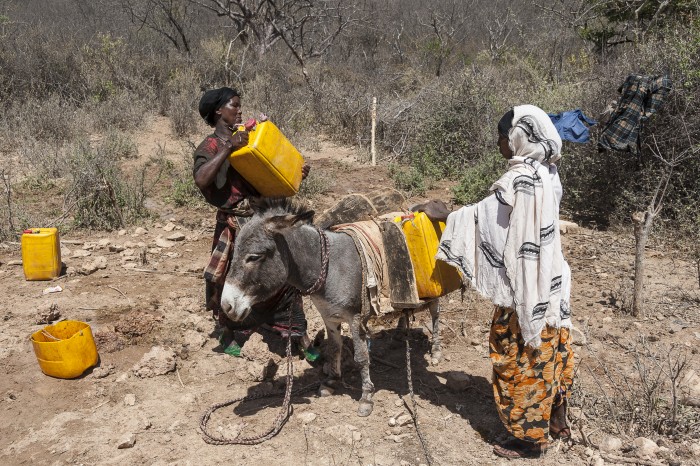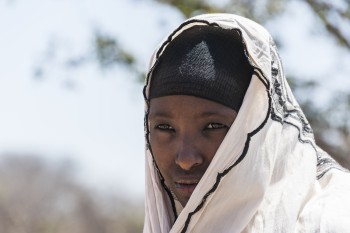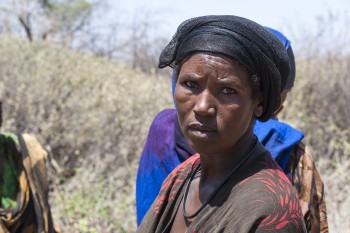
Water reserves depleting rapidly
The majority of the population in the Raytu District, the drylands of the Bale Region, make a living from animal husbandry. Availability of water is very important. The water reserves are depleting rapidly because very little rain fell during the last rainy season. The basins in which rainwater is collected are emptying very quickly. These basins, dug by the local people, the government, and aid organizations of the EECMY (Ethiopian Evangelical Church Mekane Yesus), are the only sources of water in the area. If they are empty, people have to move elsewhere with their cattle.

A water basin provides water for a long time
This is not yet the case in Finco. Last year, the EECMY, together with the local population, dug a large water basin at least three metres deep here. This basin is used by 120 households. There is enough water for household use and for the small livestock. Cows have a different watering hole. Where other, smaller and more shallow basins are already empty or will be so in a month, this basin still has enough water supply to last until the next rainy season.
Staying in one place because of the water basin
Ashha Umer, 30 years old, came with her donkey to collect water this morning. “Every day I collect 50 to 60 litres water at the basin. This is enough for me, my five children, and the goats. My donkey gets its daily ration of water here. My husband brings the cows to another watering hole. This water basin has improved our situation greatly. Previously, we could not stay in one place, because there was never enough water to allow staying long in one place. Since we have the basin, we can stay here.”

Registration with the government now possible
“It is easier to practice agriculture now; during the rainy season, we plant a field with some grain, wheat, and sorghum. Unfortunately, the harvest was very bad this year. We will have to sell cattle in order to buy food. An advantage of being able to stay in one place is that we can be registered with the government. If you’re registered, you are eligible for food aid. When you keep moving around, it is hard to get yourself registered.”
Hoping for food aid
Her 18-year-old daughter Kemeria Hussein has also come along to get water. Like her mother, she has a small field where she cultivates teff, sorghum, and maize. She has had no harvest because of the lack of rain. “The last rainy season was so bad that we could do no planting. I am hoping for food aid from the government to be able to feed my child in particular. Fortunately, we have water all year round and can stay in one place. I, too, hope that I can be registered with the government.”
Text: Mariken Stolk
